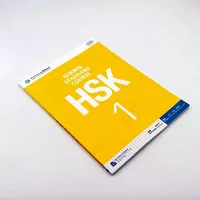A:你们 是 怎么 来 饭店 的 ?
|||comment|venir|restaurant|
how|you|are|how|came|restaurant|possessive particle
|||||restaurant|
|vocês|são|como|chegar|hotel|partícula possessiva
|||như thế nào|đến|nhà hàng|
|あなたたち|は|どうやって|来た|ホテル|の
|wy|jest|jak|przyjechać|do hotelu|partykuła przeszłości
A: Wie sind Sie ins Hotel gekommen?
A: Hvordan kom du til hotellet?
A: Как вы пришли в ресторан?
A: How did you come to the restaurant?
A: Hvordan kom I til restauranten?
A: Các bạn đến nhà hàng bằng cách nào?
A: ¿Cómo llegaron ustedes al restaurante?
A: Come siete venuti al ristorante?
A: Comment êtes-vous venus au restaurant ?
A:너희는 어떻게 식당에 왔니?
A: Hoe zijn jullie naar het restaurant gekomen?
A: Jak dojechaliście do restauracji?
A: Como vocês vieram para o restaurante?
A:あなたたちはどうやってレストランに来たのですか?
B:我们 是 坐 出租车 来 的 。
||||такси||
|nous|sommes|prendre|taxi|venir|particule de complément
taxi|we|are|take|taxi|come|emphasis marker
|wij|zijn|nemen|taxi|komen|verleden tijd marker
|nós|somos|pegar|táxi|vir|partícula possessiva
|chúng tôi|thì|ngồi|taxi|đến|trợ từ nhấn mạnh
|우리는|~이다|타다|택시|오다|강조사
|noi|siamo|prendere|taxi|venire|particella di completamento
|vi|er|tage|taxa|til|partikel
||||taxi||
|my|to be|jechać|taksówką|przyjechać|partykuła przeszłości
|私たち|は|乗る|タクシー|来た|完了助詞
|nosotros|somos|tomar|taxi|venir|partícula de énfasis
B: Wir sind mit dem Taxi gekommen.
B: Vi kom med taxi.
B: Мы приехали на такси.
B: We came by taxi.
B: Vi tog en taxa.
B: Chúng tôi đến bằng taxi.
B: Vinimos en taxi.
B: Siamo venuti in taxi.
B: Nous sommes venus en taxi.
B:우리는 택시를 타고 왔어.
B: We zijn met de taxi gekomen.
B: Przyjechaliśmy taksówką.
B: Nós viemos de táxi.
B:私たちはタクシーで来ました。
A:李 先生 呢 ?
|Li|Monsieur|particule interrogative
Mr. Li|Li|Mr|question marker
|Li|meneer|vraagpartikel
|Li|Senhor|partícula interrogativa
|Lý|ông|thì
|이|선생님|질문 조사
|Li|signore|particella interrogativa
|Li|hr eller herre|spørgepartikel
|Li|pan|party particle
|李|先生|は
|Li|señor|partícula interrogativa
A: Was ist mit Herrn Li?
A: А мистер Ли?
A: What about Mr. Li?
A: Hvad med hr. Li?
A: Còn ông Lý thì sao?
A: ¿Y el Sr. Li?
A: E il signor Li?
A: Et M. Li ?
A:리 선생님은?
A: En meneer Li?
A: A pan Li?
A: E o Sr. Li?
A:李さんは?
B:他 是 和 朋友 一起 开 车 来 的 。
|||||вместе||||
|il|est|et|ami|ensemble|conduire|voiture|venir|particule possessive
with friends|he|is|with|friend|together|drive|car|come|emphasis marker
|hij|is|en|vriend|samen|rijden|auto|komen|verleden tijd marker
|ele|é|e|amigo|juntos|dirigir|carro|vir|partícula possessiva
|Anh ấy|thì|và|bạn|cùng nhau|lái|xe|đến|trợ từ nhấn mạnh
|그|은|과|친구|함께|운전하다|차|오다|의
|lui|è|e|amico|insieme|guidare|auto|venire|particella possessiva
|han|er|og|ven|sammen|køre|bil|komme|partikel
|on|jest|i|przyjaciel|razem|prowadzić|samochód|przyjechać|partykuła przeszła
|彼|は|と|友達|一緒に|運転する|車|来る|完了助詞
|él|es|y|amigo|juntos|conducir|coche|venir|partícula de acción completada
B: Er kam mit einem Freund mit dem Auto.
B: Han kjørte hit med vennene sine.
B: Bir arkadaşıyla birlikte arabayla geldi.
B: Он приехал на машине с друзьями.
B: He came by car with a friend.
B: Han kørte herhen sammen med en ven.
B: Ông ấy đến bằng xe hơi cùng bạn.
B: Él vino en coche con un amigo.
B: È venuto in auto con un amico.
B: Il est venu en voiture avec des amis.
B:그는 친구와 함께 차를 타고 왔어.
B: Hij is met vrienden gekomen met de auto.
B: On przyjechał samochodem z przyjaciółmi.
B: Ele veio de carro com um amigo.
B:彼は友達と一緒に車で来ました。
饭店
restaurant
restaurant
hotel
restaurante
nhà hàng
호텔
ristorante
hotel
ホテル
hotel
Hotel
Ресторан
Restaurant
Restauranten
Nhà hàng
restaurante
ristorante
restaurant
식당
restaurant
restauracja
restaurante
レストラン
出租车
такси
taxi
taxi
taxi
táxi
taxi
Taxi (1)
택시
taxi
taxa
taksówka
taxi
タクシー
taxi
Taxi
Такси
Taxi
taxi
Xe taxi
taxi
taxi
taxi
택시
taxi
taksówka
táxi
タクシー
一起
вместе
ensemble
together
samen
juntos
cùng nhau
gemeinsam
함께
tillsammans
sammen
razem
insieme
一緒に (いっしょに)
juntos
gemeinsam
Вместе
Together
sammen
Cùng nhau
juntos
insieme
ensemble
함께
samen
razem
juntos
一緒に
SENT_CWT:9r5R65gX=1.55 PAR_TRANS:gpt-4o-mini=1.31 SENT_CWT:9r5R65gX=1.25 PAR_TRANS:gpt-4o-mini=1.21 SENT_CWT:AsVK4RNK=1.31 PAR_TRANS:gpt-4o-mini=0.72 SENT_CWT:9r5R65gX=2.17 PAR_TRANS:gpt-4o-mini=1.13 SENT_CWT:9r5R65gX=4.73 PAR_TRANS:gpt-4o-mini=1.08 SENT_CWT:9r5R65gX=1.67 PAR_TRANS:gpt-4o-mini=0.94 SENT_CWT:9r5R65gX=2.32 PAR_TRANS:gpt-4o-mini=1.27 SENT_CWT:9r5R65gX=3.05 PAR_TRANS:gpt-4o-mini=0.86 SENT_CWT:9r5R65gX=1.54 PAR_TRANS:gpt-4o-mini=0.79 SENT_CWT:9r5R65gX=1.9 PAR_TRANS:gpt-4o-mini=1.34 SENT_CWT:9r5R65gX=3.09 PAR_TRANS:gpt-4o-mini=1.41 SENT_CWT:9r5R65gX=1.8 PAR_TRANS:gpt-4o-mini=1.07 SENT_CWT:9r5R65gX=1.68 PAR_TRANS:gpt-4o-mini=0.93 SENT_CWT:9r5R65gX=1.37 PAR_TRANS:gpt-4o-mini=4.0 SENT_CWT:9r5R65gX=1.46 PAR_TRANS:gpt-4o-mini=1.19
ru:9r5R65gX vi:9r5R65gX en:AsVK4RNK da:9r5R65gX pt:9r5R65gX vi:9r5R65gX ja:9r5R65gX es:9r5R65gX it:9r5R65gX fr:unknowd ko:unknowd nl:unknowd pl:unknowd pt:unknowd ja:unknowd
openai.2025-02-07
ai_request(all=9 err=0.00%) translation(all=7 err=0.00%) cwt(all=31 err=12.90%)
